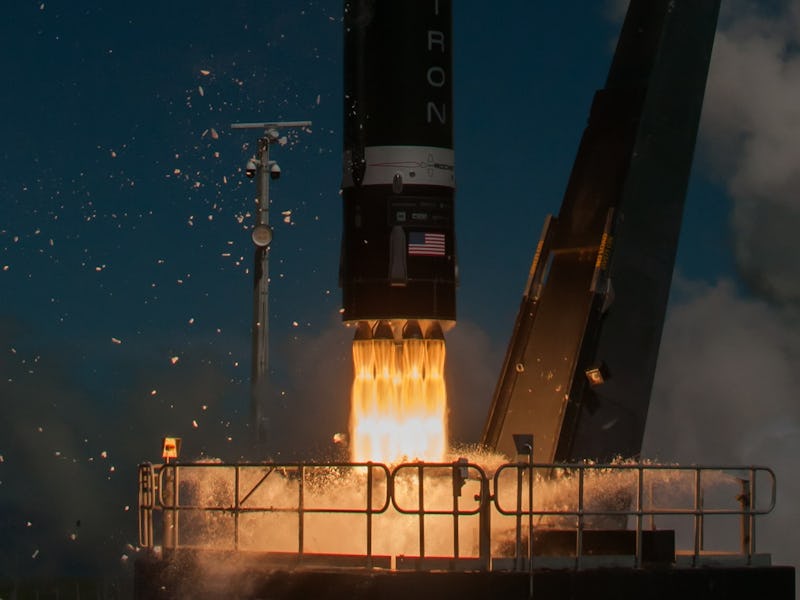Watch Rocket Lab’s mid-air recovery that’s earned the praise of Elon Musk
The firm is taking a new approach to the tricky task of retrieving rockets.

A private rocket firm, which recently successfully recovered one of its vehicles using a helicopter, has drawn praise from SpaceX CEO Elon Musk.
California-based Rocket Lab may not attract the same name recognition as Blue Origin and SpaceX, but it's so far launched 48 small satellites since its founding in 2006. On Thursday, in response to a question about Rocket Lab's latest retrieval efforts, Musk praised the firm on his Twitter page.
Some of the small launcher activity is cool, especially [Rocket Lab]. Downsides are helicopter retrieval doesn’t scale to bigger rockets & is highly weather-dependent. Also, propulsive landing is needed for moon/Mars. That said, it’s probably right move for small LEO vehicle.
"I have great respect for anyone who gets a rocket to orbit!" Musk later wrote about the company. "It’s very hard."
The comments cut to one of the biggest problems in rocket launches: saving the rocket means companies can reuse them repeatedly, thereby reducing costs and making space more accessible. In September 2017, Musk noted how the Boeing 747 costs around $500,000 to fly each time, dismissing the idea of disposable rockets as "crazy." Beyond the economic benefits, a reusable rocket also opens up the possibility of more ambitious missions, like sending humans to Mars and beyond.
The Rocket Lab retrieval effort in question took place early March in New Zealand, before the country implemented coronavirus lockdown measures. The firm dropped an Electron first stage rocket from a helicopter over the ocean. The rocket deployed a parachute, and a second helicopter equipped with a grappling hook successfully caught the drogue line on the first attempt. The helicopter then successfully ferried the rocket back to land.
Rocket Lab shared footage of the successful recovery on its YouTube channel:
The two-stage Electron rocket is notably smaller than SpaceX's, making it well-suited to smaller satellites. It measures just 56 feet tall and under four feet in diameter. It's capable of carrying a maximum payload of 496 pounds. By comparison, SpaceX's Falcon 9 rocket measures 230 feet tall, 12 feet in diameter and can carry 18,300 pounds to geostationary transfer orbit. SpaceX has landed 50 rocket cores after launch.
"Electron has already unlocked access to space for small satellites, but every step closer to reusability is a step closer to even more frequent launch opportunities for our customers," company founder Peter Beck said in a statement.
The firm has moved from strength to strength since it launched its first rocket in May 2017. During the two most recent missions, hosted in December 2019 and January 2020, it fitted the rockets with new hardware designed to support full reusability, like guidance and control systems. These helped it maintain a 180-degree orientation during re-entry and slowed the speed from 4,350 mph to just 560 mph when it reached sea level.
Rocket Lab now plans to host another test in late 2020. It will launch an Electron rocket, deploy a parachute, complete a soft landing in the ocean, then send it back to the nearby production complex for refurbishments.
The Inverse analysis
Musk's friendly comments speak to the emerging nature of the new space race. Where the industry has been previously dominated by national space agencies, the new era is focused on private companies. It was a hard fight to get to this stage: SpaceFund founder Rick Tumlinson told Inverse in February 2019 that campaigners had to "peel the fingers of the aerospace industrial complex" off of the industry to let newcomers get a shot. Tumlinson praised Rocket Lab during the interview as "very impressive."
As these firms solve some of the big issues around rocket reusability, it's a process that could create an industry that Morgan Stanley predicted in July 2019 would be worth $1 trillion by 2040.